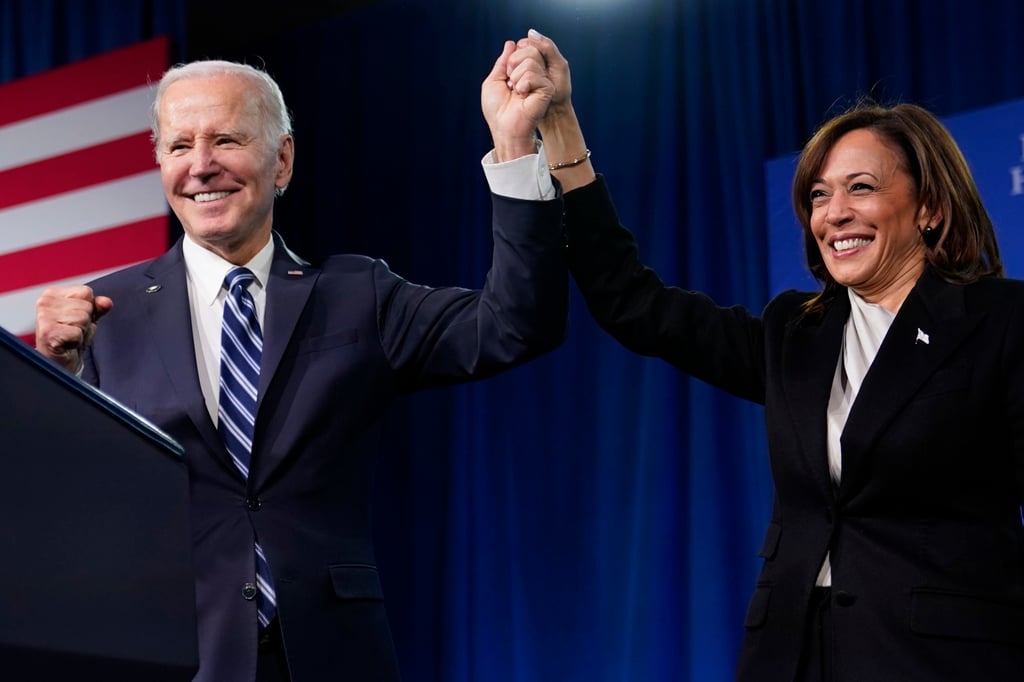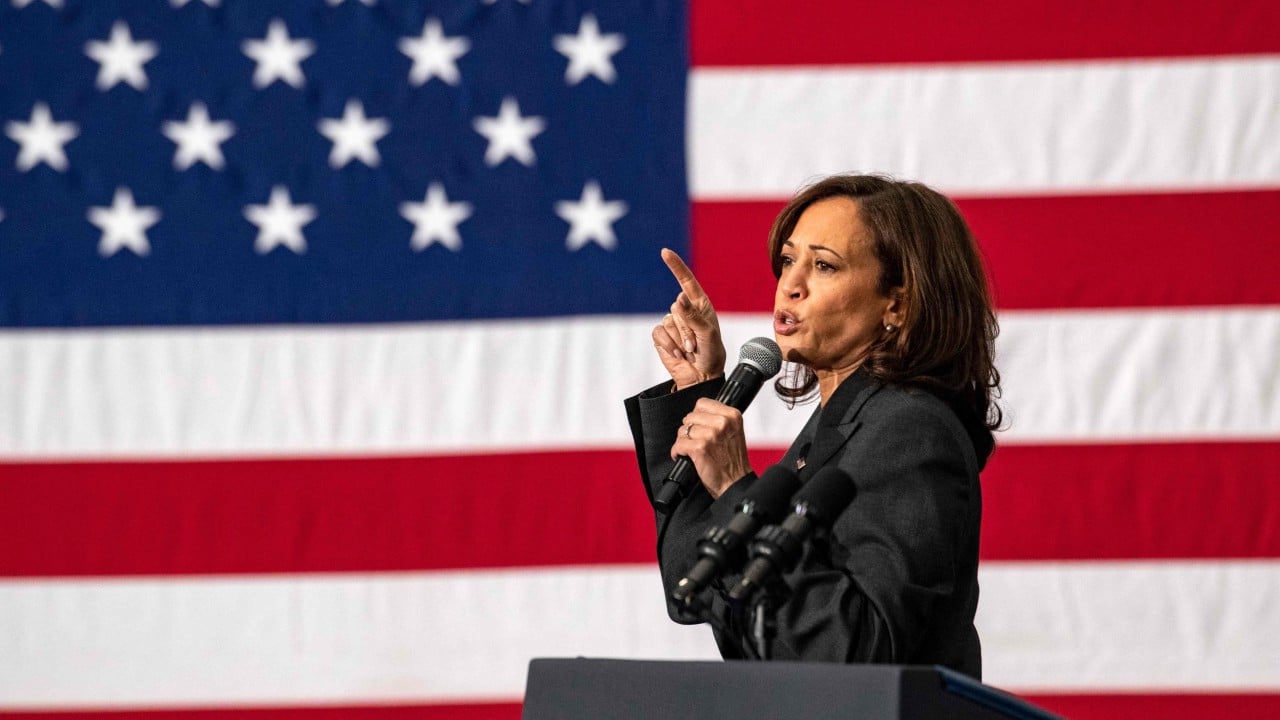America’s attitude and foreign policy towards Hong Kong are unlikely to change if Kamala Harris emerges as the country’s next president, as competition with China remains a bipartisan issue, analysts have said.
Experts told the Post that the overarching competition between China and the United States, as well as Harris’ limited experience in US foreign affairs and her track record on Hong Kong policies, diminished the likelihood of her carving out a different path.
“Competition between China and the US will remain tense, especially over Taiwan and the South China Sea,” said Lau Siu-kai, a consultant for Beijing’s semi-official think tank, the Chinese Association of Hong Kong and Macau Studies.
“No matter who becomes president, I don’t think they will be particularly friendly to Hong Kong.”
US President Joe Biden endorsed Harris as the Democratic Party’s presidential nominee as he announced his decision to drop out of the race on Monday, with political heavyweights such as California Governor Gavin Newsom, past contender Hillary Clinton and former president Bill Clinton throwing their support behind her.
ActBlue, the party’s fundraising platform, recorded US$46.7 million in donations within nine hours of Harris’ endorsement, marking the biggest fundraising day in the current election cycle.
Dov Haim Levin, an associate professor of international relations at the University of Hong Kong, said the presidential hopeful’s stance on foreign policy was unlikely to deviate from Biden’s position if she secured the top job.
“Many of the senior and mid-level officials currently involved in these policies are very likely to remain in related positions if she is victorious and help shape her policies regarding these US policies in the following years,” Levin said.
Levin and Lau both pointed out that Harris’ own opinion towards China and Hong Kong remained unknown, as she was not one of the key officials behind Biden’s policies towards either.
As the daughter of an Indian mother and Jamaican father, Harris is America’s first non-white and female vice-president. She rose to become a US senator in 2017 after seven years as California’s attorney general.

As a senator, Harris co-sponsored the Hong Kong Human Rights and Democracy Act in 2019. The federal law requires the US State Department to sign off on an annual government report to determine whether Hong Kong is sufficiently autonomous from mainland China.
The law also empowers the US president to impose “property and visa-blocking sanctions” on personnel “responsible for gross human rights violations in Hong Kong”.
Chong Ja-ian, an associate professor of political science at the National University of Singapore, said a Harris presidency was unlikely to bring about significant foreign policy changes, especially when competition with China was a bipartisan issue in the US.
“Harris has previously pushed for human rights issues relating to China, including over Hong Kong, when she was a senator,” the academic said.
“So I don’t think her basic stance will change. Any adjustment will probably be dependent on the actions of the Hong Kong government and its officials.”


